Nature's Calendar: The British Year in 72 Seasons.
Kiera Chapman, Lulah Ellender, Rowan Jaines and Rebecca Warren.
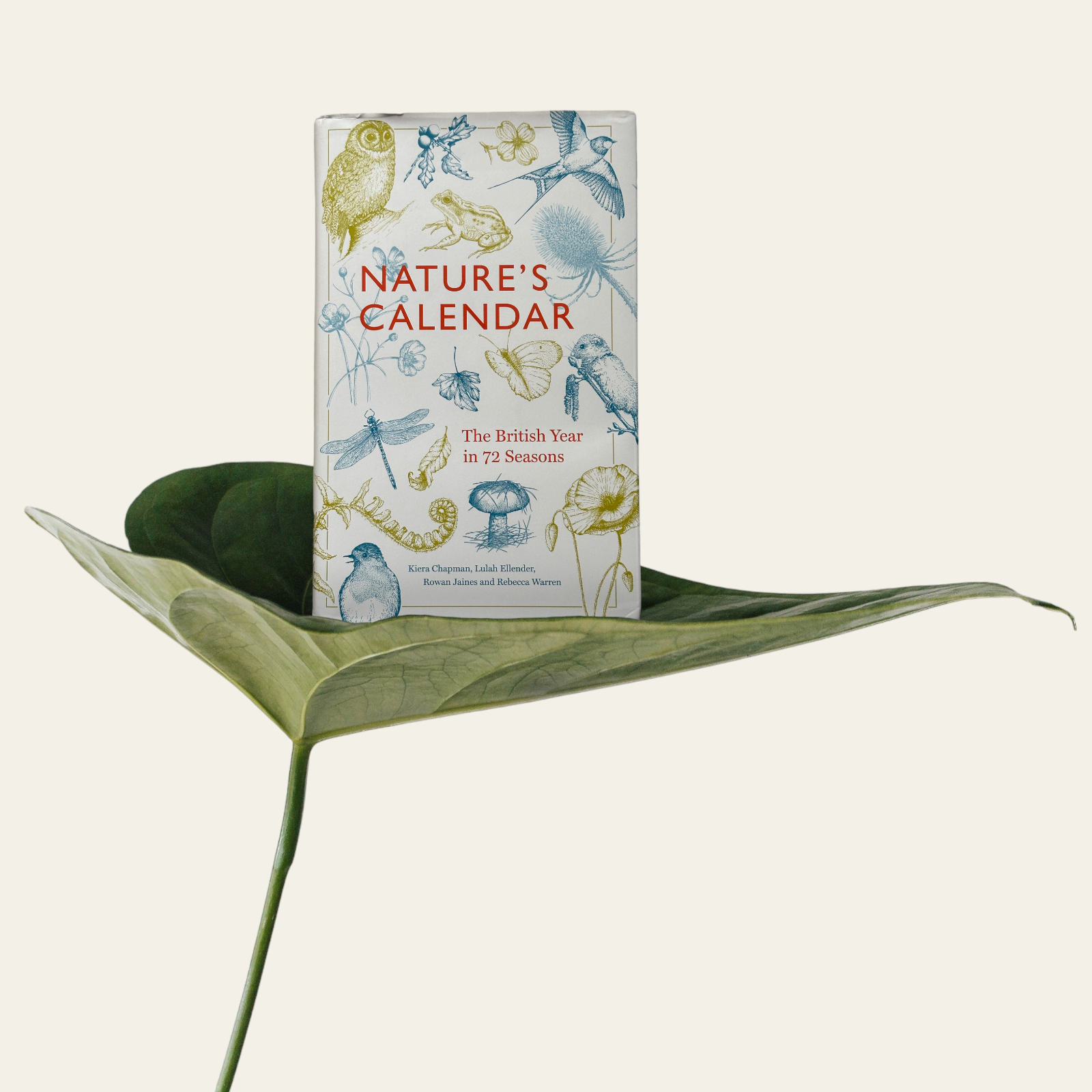
I'm sitting in the van on the darkest of days. On evenings like this, the walls close in, and the glow of the interior light is cast in tiny defined circles. The heater is on, but the windows are frosted on the inside.
I reach for Nature's Calendar from the shelf at the back of the van and read the first passages.
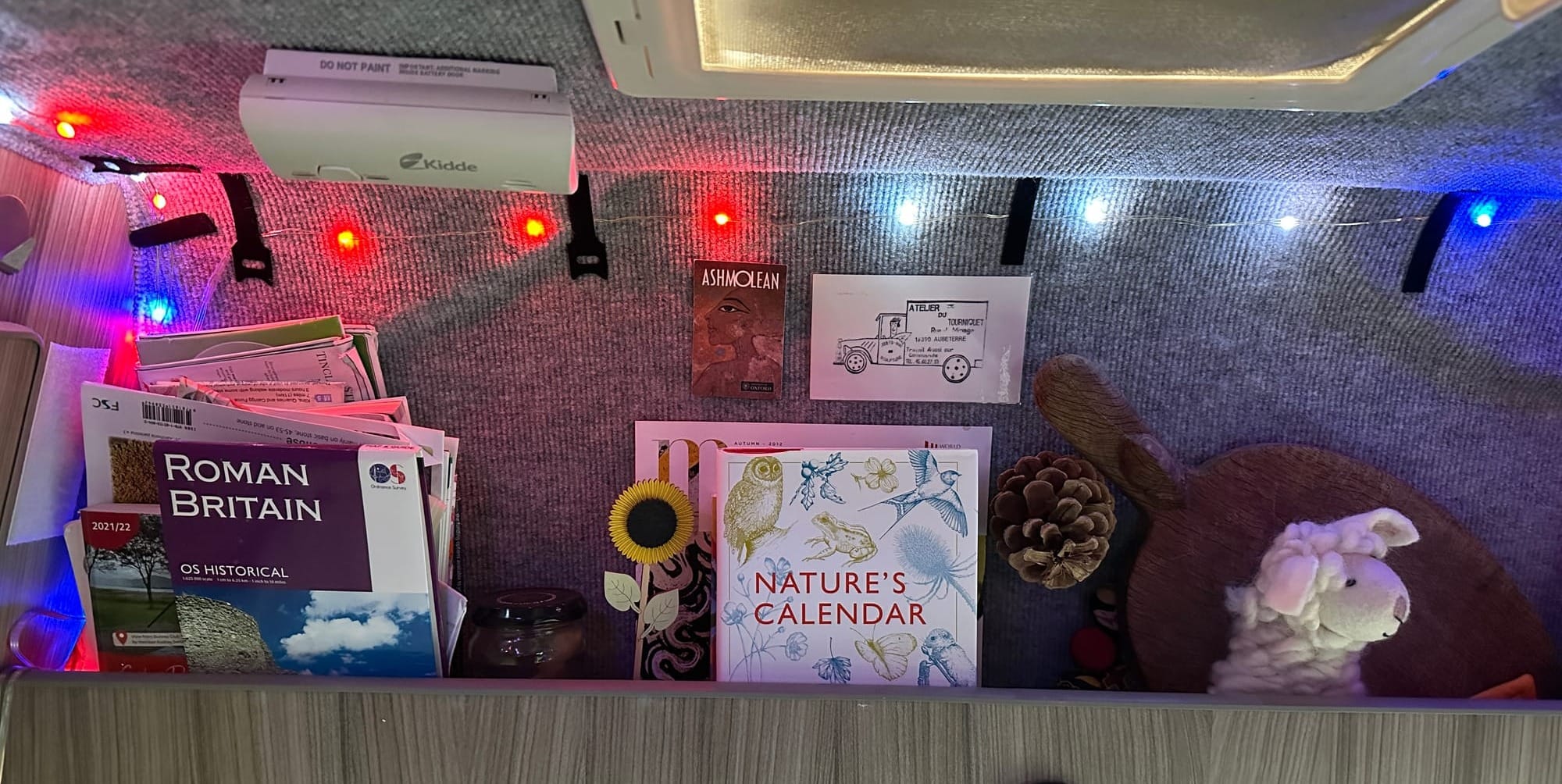
Instantly, I'm transformed by a few lines that offer hope in the darkest days:
'Research undertaken at Coventry University suggests that spring moves at an average of 1.9 miles per hour across the UK...Hawthorn leaves..open first in the south-west, and the timing of their unfurling travels in a north-easterly direction at a rate of 6.3 miles per hour. Sightings of the first flutterings of orange tip butterflies travel at an average of 1.4 miles per hour...Spring is not so much an event as a movement...'
Nature's Calendar is a glorious collaboration between Kiera Chapman, Lulah Ellender, Rowan Jaines and Rebecca Warren.
The book has been beautifully illustrated (also with some chapters written by her) by Digest subscriber and member Rebecca Warren.
Rebecca regularly keeps in touch and passes on such wisdom and support in her correspondence. She has also sketched some of the buildings from photographs in this Digest.

The book came about by chance. In Rebecca's words:
The Covid-19 Lockdown Year of 2020 forced many of us to slow down, to notice what was close at hand, to take time - because we had time - to engage with what was close at hand, in the garden, in the park, down the local footpath… Many of us also turned to social media to share our discoveries with people less fortunate, or more knowledgeable, than ourselves.
Living in the countryside and already passionate about the nature, I met up by chance on-line with three other women who shared this passion. Confined to our homes and local areas, we shared our experiences of seeing small changes in the natural world outside our windows. When one of us mentioned the ancient Japanese tradition of dividing the year into numerous ‘micro-seasons’, rather than week or months, we began to wonder how a British Micro-Season calendar might look.
Nature does not, of course, belong to any of us, even though we are all responsible for its well-being, so we set up a new account on Twitter (as it was) to see what other people were noticing too. Inclusivity and public participation were fundamental parts of our project - and we actively encouraged people from all communities and backgrounds to share their most ‘seasonal’ observation for each micro-season of 5 days. At the end of each micro-season we held a vote on which observation most resonated with our audience’s experience.
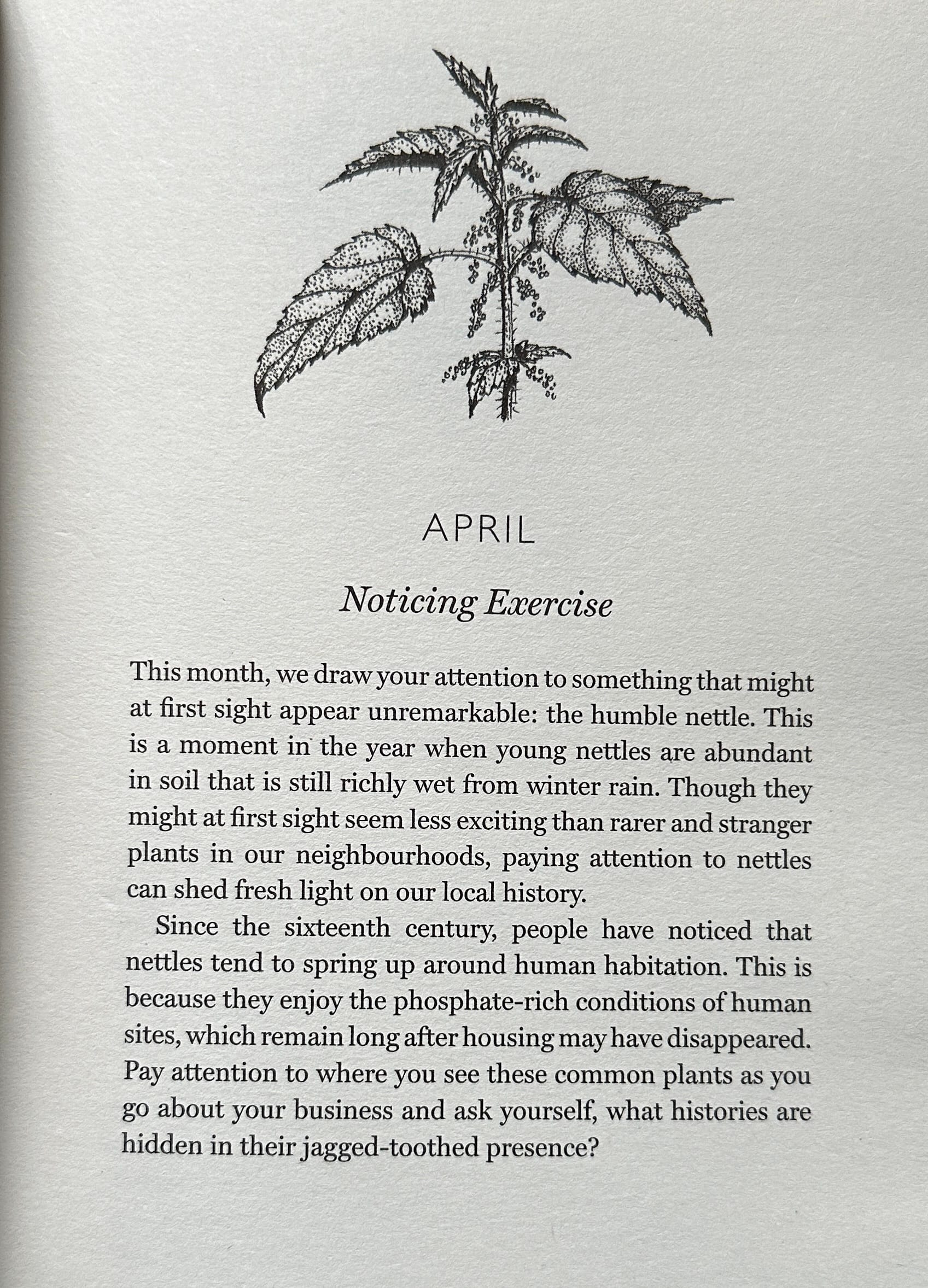
Fast forward a year and we had created a calendar of 72 micro-seasons, each named by public vote: the end of January, as I write this, is ‘Bright Winter Aconites’ whilst other seasons include ‘Ferns Unfurl’ (15-20th May) or ‘Sound of Migrating Geese and Swans’ (3-7 October). To our surprise and delight, out of nowhere we were offered a contract to turn the calendar into a book and ‘Nature’s Calendar: The British Year in 72 Seasons’ is the result, published in September 2023.
Inside, each micro-season has an essay on what lies behind the title and one or two illustrations. Each month, we also provide an idea for ‘noticing nature’ through an activity - some are simple, ‘do-at-home’ ideas, others encourage exploration beyond the backdoor. As each of us - the four authors - have different day-jobs, we all brought different interests and focuses to our essays, but in each we sought to offer a deeper understanding of our subjects than just a simple appreciation of natural beauty. My own contribution also included illustrating the book, which was, in its own right, a way of ‘noticing nature’. Nothing forces you to really ‘look’ at a subject like having to draw it! And developing a technique for illustrating colourful subjects in black and white pen took some careful thought and experimentation.
Many of our readers tell us they are reading each essay season by season as 2024 unfolds. Of course, each year will be different - but one of the joys of a seasonal record like ours is making new comparisons and observations to set against those in the book. How much is the same, year on year? How much has changed?
If you fancy a deep dive into natural change, do look out for Nature’s Calendar in the bookshop and do get in touch with us on Twitter/X: @naturalcalendar
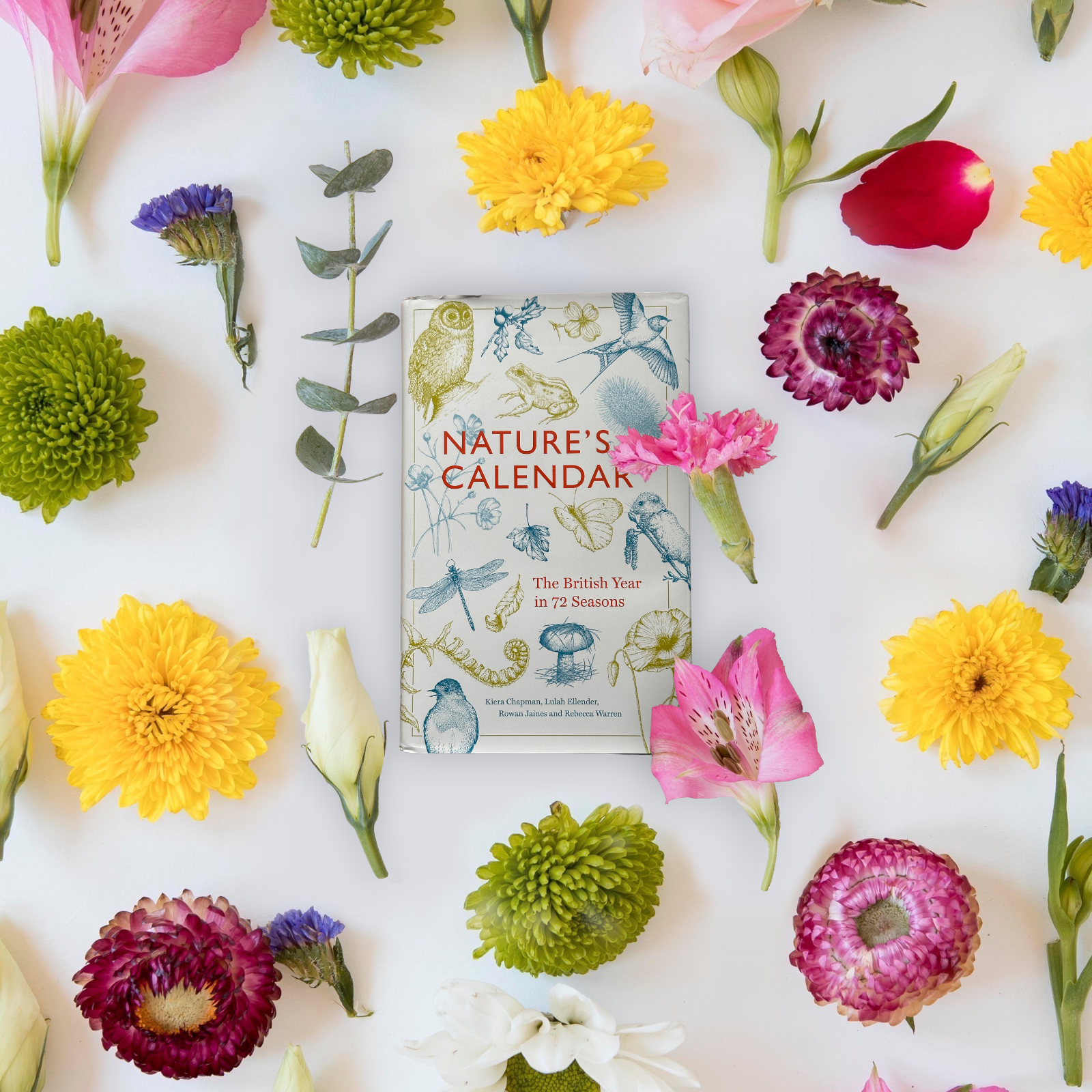
Rebecca has kindly shared some of her original sketches from the book for digest subscribers:
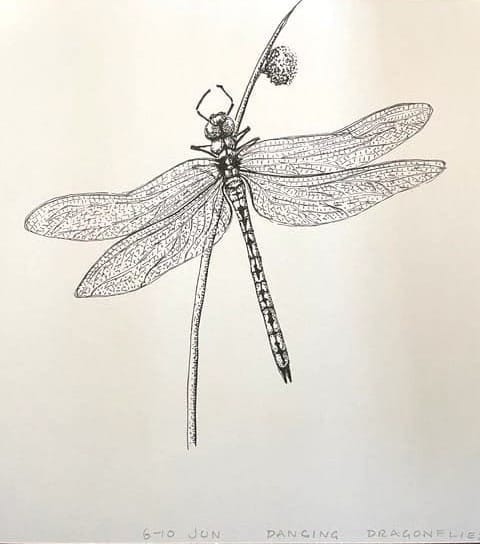

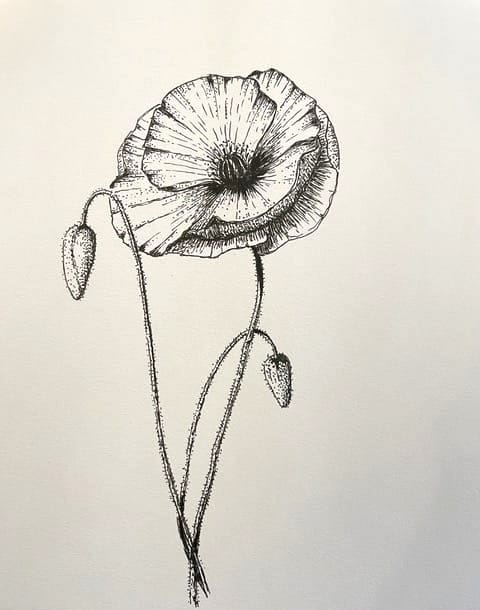
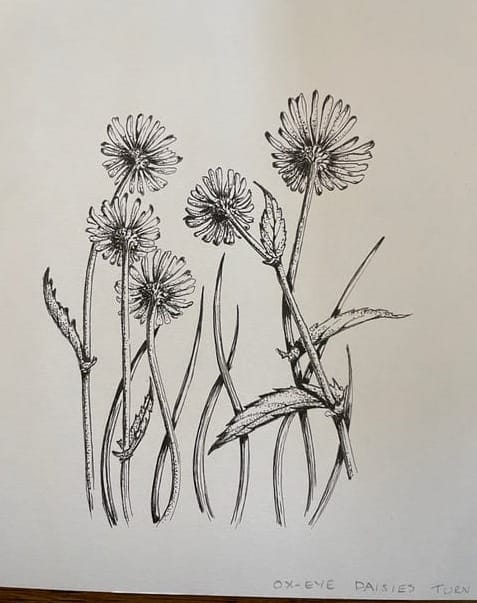
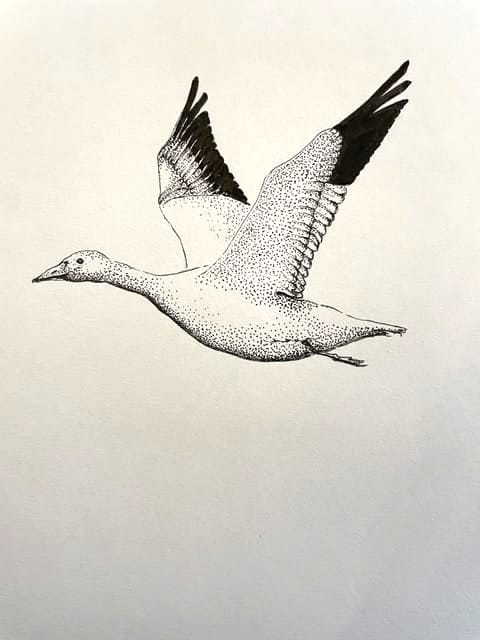
Nature's Calendar: The British Year in 72 Seasons.
Kiera Chapman, Lulah Ellender, Rowan Jaines and Rebecca Warren.
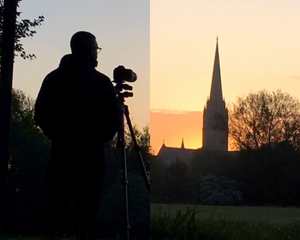

Member discussion